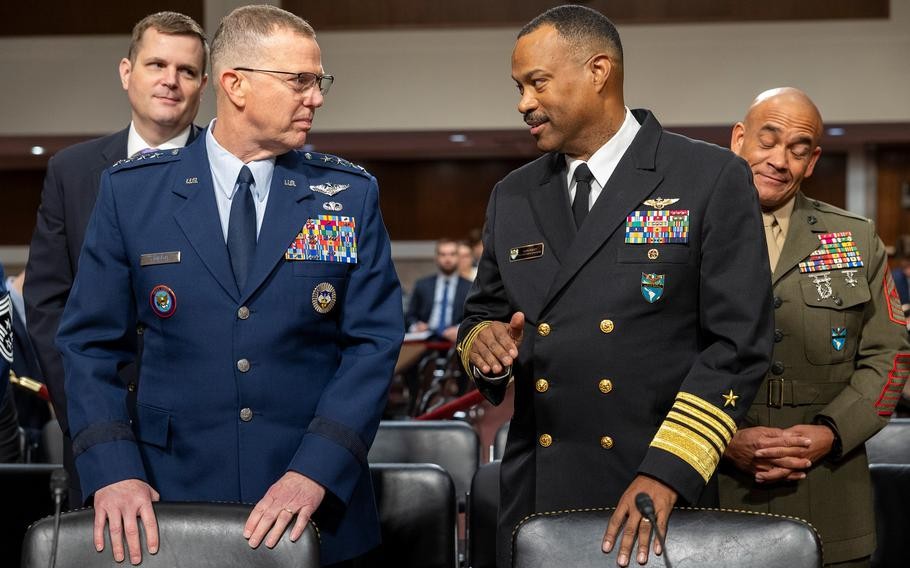
Military leaders struggled to provide clear answers about the financial implications and troop readiness regarding expanded operations along the U.S.-Mexico border during a Senate Armed Services Committee hearing on Thursday.
Air Force Gen. Gregory Guillot of U.S. Northern Command and Adm. Alvin Holsey of U.S. Southern Command testified about recent changes to military involvement at the southern border, including increased troop presence, deportation flights, and migrant detention operations at Guantanamo Bay.
The military presence along the border has doubled to approximately 5,000 troops since January, when President Trump signed executive orders expanding the military's role in border security operations. The orders also initiated military-operated deportation flights and deployed 700 troops to manage migrant detention facilities in Guantanamo.
During questioning, Sen. Elizabeth Warren highlighted previous issues with cost transparency, citing a 2021 Government Accountability Office review that found the Pentagon had excluded major expenses from their estimates. The Department of Defense now projects costs of nearly $1 billion over eight months for the expanded mission.
Training readiness has been impacted, according to Gen. Guillot, who revealed that deployed troops receive only about 20% of their normal training. The current schedule allows one day per week for standard military training, with five days dedicated to border support activities.
The use of military aircraft for deportation flights has raised additional cost concerns, with senators noting operational costs of approximately $30,000 per hour - several times higher than traditional chartered flights. Neither commander could provide specific details about these expenses.
At Guantanamo Bay, where the military has transported about 100 migrants, basic operational costs run about $100 million annually. While current facilities can house 2,500 people, plans could expand capacity to 30,000, though Adm. Holsey indicated this would depend on migrant flows and further direction.
The hearing highlighted ongoing challenges in tracking and justifying the costs of military involvement in border operations, as well as concerns about the impact on military readiness and traditional defense priorities.